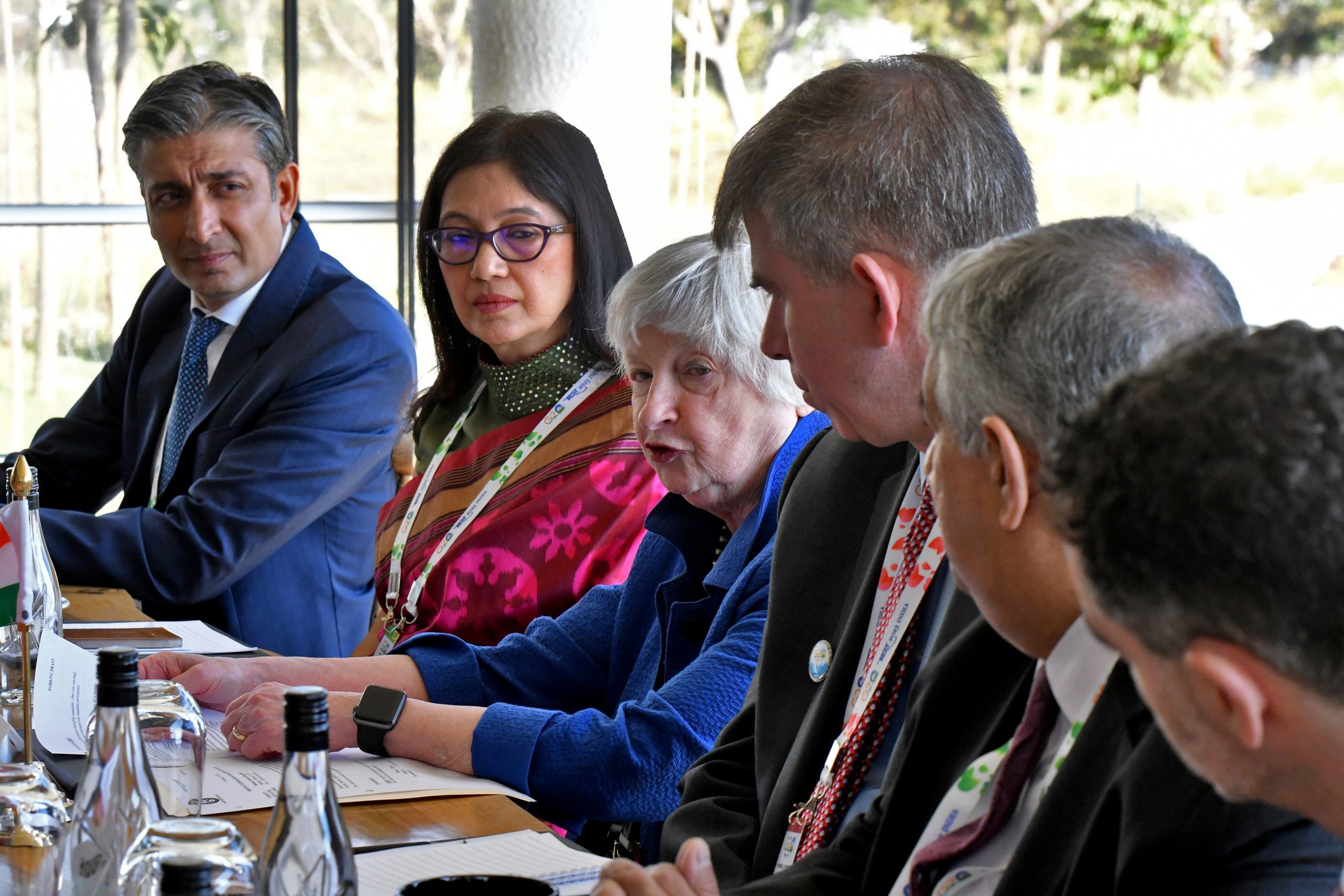The G20 Foreign Ministers’ meeting was unable to agree to a joint communique here Thursday over sharp differences on the Russia-Ukraine war between the US-led West on one side and Russia-China on the other.
Top diplomats from the Group of 20 industrialized and developing nations ended their contentious meeting in New Delhi on Thursday, March 2nd with no consensus on the Ukraine war, India’s foreign minister said, as discussions of the war and China’s widening global influence dominated much of the talks.
Indian Foreign Minister Subrahmanyam Jaishankar said there were “divergences” on the issue of war in Ukraine that “we could not reconcile, as various parties held differing views.”
“If we had a perfect meeting of minds on all issues, it would have been a collective statement,” Jaishankar said. He added that members agreed on most issues involving the concerns of less-developed nations, “like strengthening multilateralism, promoting food and energy security, climate change, gender issues and counter-terrorism.”

Jaishankar, who chaired two sessions of discussions at the G20 Foreign Ministers meeting on March 2, 2023 said that the twenty countries that make up the G20 were in agreement on a range of global issues. Speaking at a press meet after the meeting, Jaishankar said, “Despite the challenges of the divergent positions on the conflict in Ukraine, the G20 foreign ministers were able to come to a consensus on addressing key challenges.”
As per reports, China and Russia objected to two paragraphs taken from the previous G-20 declaration in Bali last year, according to a summary of Thursday’s meeting released by India. The paragraphs stated that the war in Ukraine was causing immense human suffering while worsening weak spots in the global economy, and affirmed the need to uphold international law and that “the use or threat of use of nuclear weapons is inadmissible.”
A summary issued by Host India stated: “The war in Ukraine has further adversely impacted the global economy. There was a discussion on the issue. We reiterated our national positions as expressed in other fora, including the UN Security Council and the UN General Assembly, which, in Resolution No. ES-11/1 dated 2 March 2022, as adopted by majority vote (141 votes for, 5 against, 35 abstentions, 12 absent) deplores in the strongest terms the aggression by the Russian Federation against Ukraine and demands its complete and unconditional withdrawal from the territory of Ukraine.
“Most members strongly condemned the war in Ukraine and stressed it is causing immense human suffering and exacerbating existing fragilities in the global economy – constraining growth, increasing inflation, disrupting supply chains, heightening energy and food insecurity, and elevating financial stability risks. There were other views and different assessments of the situation and sanctions. Recognizing that the G20 is not the forum to resolve security issues, we acknowledge that security issues can have significant consequences for the global economy.”
Host India had appealed for all members of the fractured G-20 to reach consensus on issues of deep concern to poorer countries even if the broader East-West split over Ukraine could not be resolved. While some attendees, including U.S. Secretary of State Antony J. Blinken, chose to highlight their positive roles in addressing world crises, the divide was palpable.
The talks began with a video address to the foreign ministers by Indian Prime Minister Narendra Modi. He urged them not to allow current tensions to destroy agreements that might be reached on food and energy security, climate change and debt.
“We are meeting at a time of deep global divisions,” Modi told the group, which included Blinken, Chinese Foreign Minister Qin Gang and their Russian counterpart, Sergei Lavrov, whose discussions would naturally be “affected by the geopolitical tensions of the day.”
Modi said: “We all have our positions and our perspectives on how these tensions should be resolved. … We should not allow issues that we cannot resolve together to come in the way of those we can.”
While, on the surface, this is a repeat of stated positions, what is significant is that both US and India said that the outcome document was approved by an overwhelming majority. In what marks a calibrated step forward, Washington backed Delhi’s statement that the Chair’s summary – put out by India as Chair of the G-20 — was a product of consensus on a variety of issues.
“With the foreign ministers of the Group of 20 leading economies meeting in New Delhi, host India is promoting itself as a rising superpower while leveraging its position on the global stage to bridge the gap between the West and Russia,” analysts stated.
